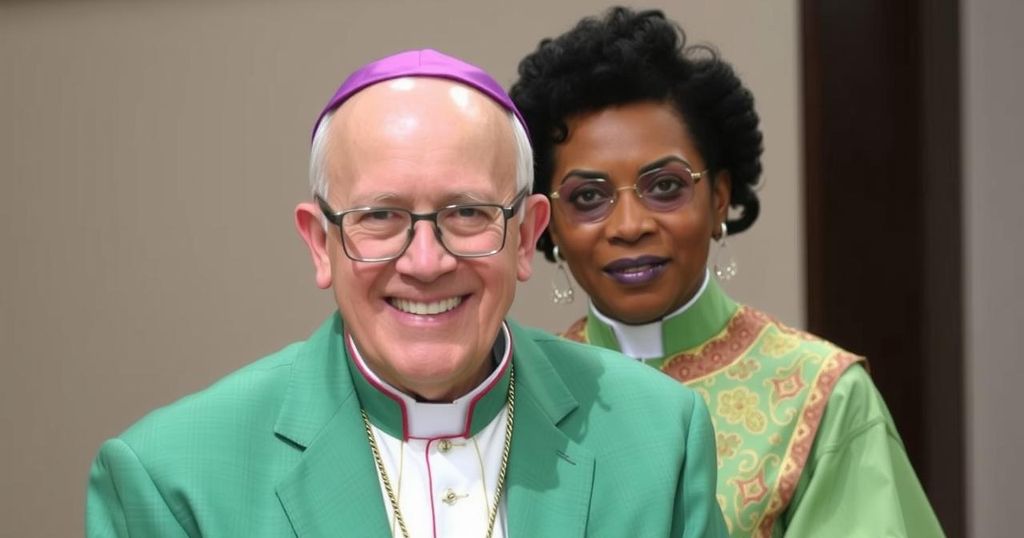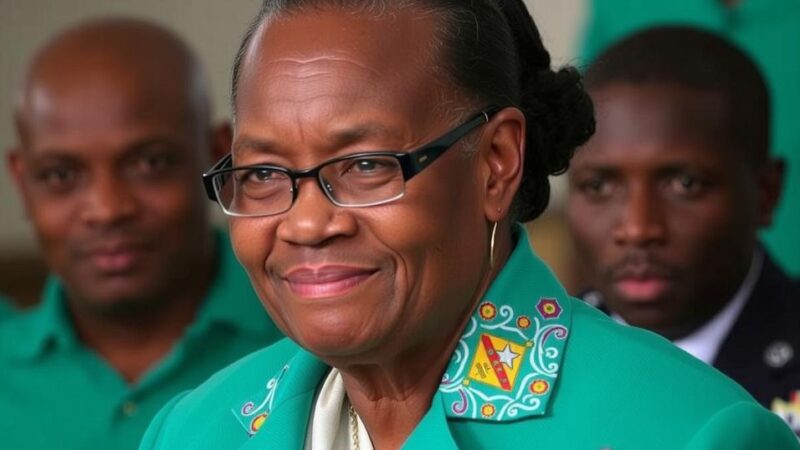The Bishops’ Conference of Congo responded to accusations from Deputy Prime Minister Jean-Pierre Bemba asserting that the Catholic Church incites hatred against the government. Bishop Donatien Nshole challenged Bemba to provide evidence for his claims, highlighting the church’s cooperation with the government on development initiatives. The backdrop includes debates over constitutional changes allowing President Tshisekedi to seek a third term, against which local church leaders have voiced opposition.
In a recent statement, the General Secretariat of the Bishops’ Conference of the Democratic Republic of Congo expressed disappointment regarding accusations made by Deputy Prime Minister Jean-Pierre Bemba during an interview on December 4. Bemba claimed that political leaders, including those of religious affiliations, were inciting hatred against the government, and he implied mismanagement of funds by the Catholic Church regarding support from the President.
Bishop Donatien Nshole addressed these allegations, requesting clear evidence of any hateful messages purportedly communicated by the Catholic Church. He emphasized that the church and the government are collaborating on social and economic initiatives for the benefit of citizens, noting that only limited financial contributions have been provided by the government under a signed agreement.
The controversy arises amidst ongoing discussions about constitutional amendments that could enable President Félix-Antoine Tshisekedi to seek a third term in office, which has drawn criticism from various local church leaders. In contrast, Bemba’s political party has affirmed its backing for the constitutional revision proposal.
The Democratic Republic of Congo is currently in a period of political tension surrounding proposed constitutional changes that would permit the incumbent president to extend his term. This situation has garnered responses not only from political figures but also from local religious authorities, particularly from the Catholic Church, which traditionally plays a significant role in the country’s socio-political landscape. The dynamics between the government and the church are further complicated by accusations of mismanagement of funds intended for charitable activities, casting uncertainty on the cooperative agreements in place.
In conclusion, the dialogue between the Catholic Church and the Congolese government highlights significant tensions surrounding political discourse and governance in the Democratic Republic of Congo. The Bishop’s conference firmly rejects accusations of hate speech and mismanagement while calling for transparency and collaboration in implementing socio-economic projects aimed at promoting the welfare of the populace amidst a contentious constitutional amendment process.
Original Source: www.fides.org







